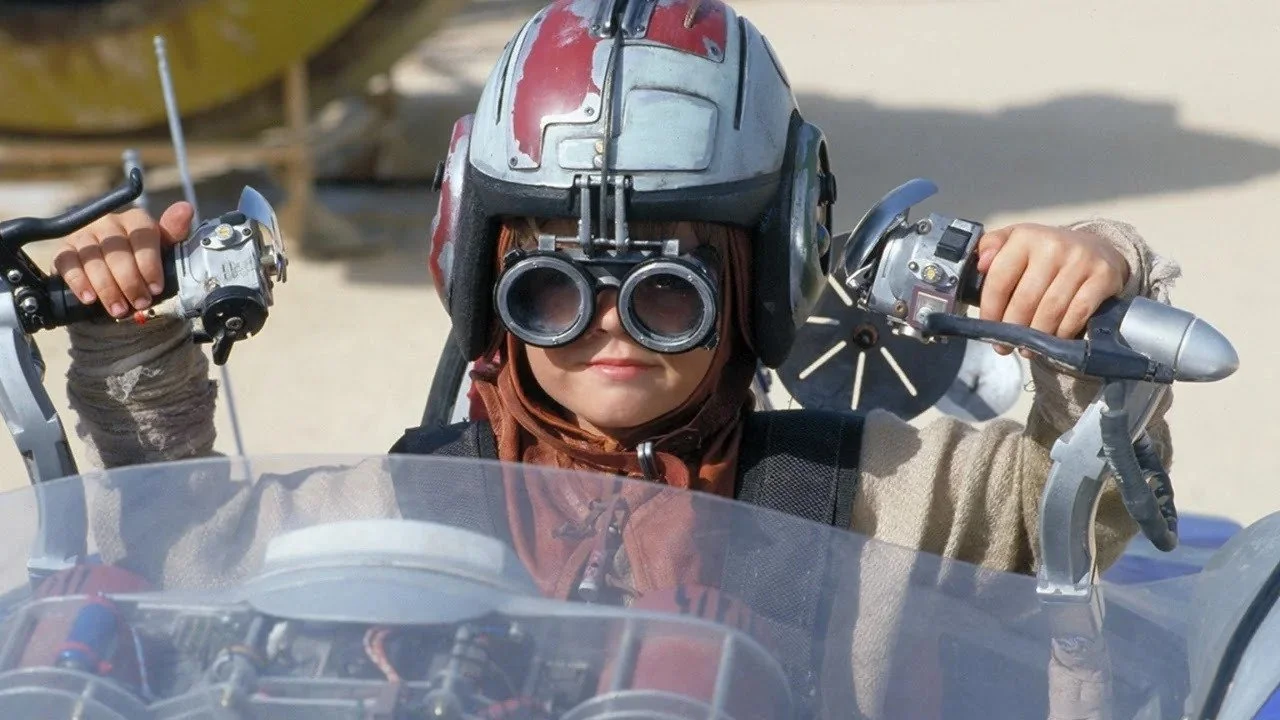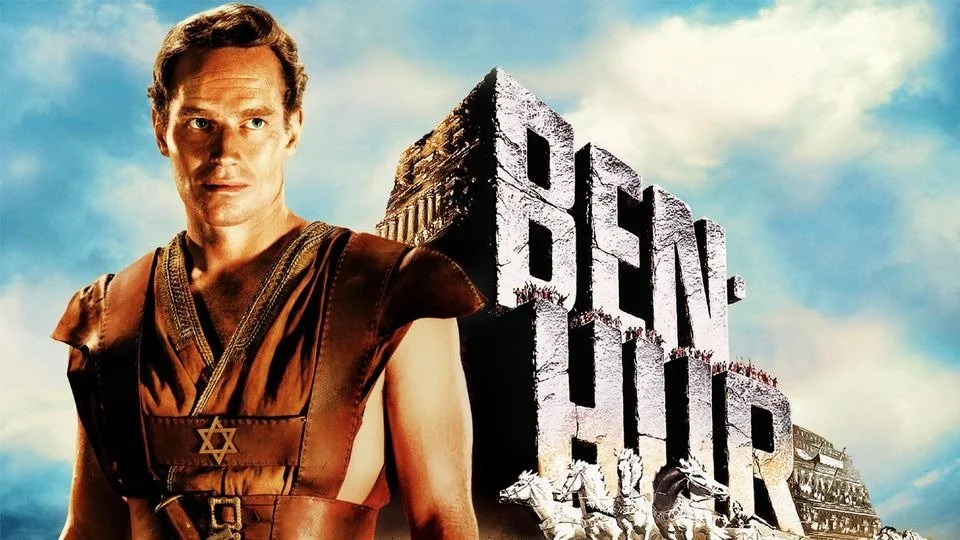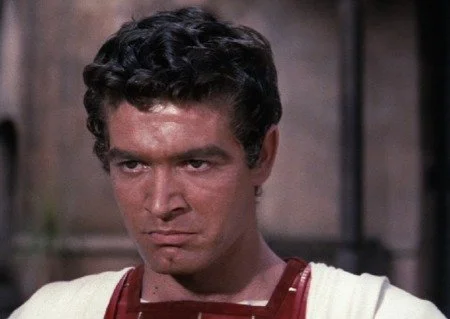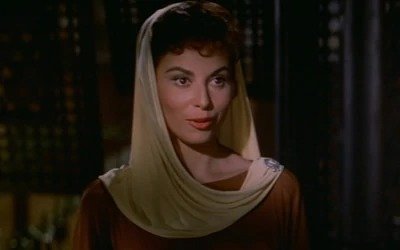Movies That Influenced 'Star Wars': How A Hollywood Epic Contributed To Anakin's Journey
"We don't make a photograph just with a camera, we bring to the act of photography all the books we have read, the movies we have seen, the music we have heard, the people we have loved." (Ansel Adams)
The Star Wars universe is everything George Lucas felt, experienced, saw, and lived. So separating what was the exact inspiration for any given scene or moment can be like genealogy. When you trace things back, it all leads back to familiar ground. For example, you could argue you wouldn't have Guardians of the Galaxy without Star Wars or Star Wars without Lord of the Rings. Then Middle Earth to mythology, and mythology to even older mythology. It is hard for anything in this world to escape the past, for everything is a derivative of something.
Some things we know inspired George because of interviews and other things we can deduce for ourselves. One of the inspirations that fall into both categories is Ben-Hur. The 1959 MGM grand epic is all over Star Wars: The Phantom Menace and the path of Anakin Skywalker.
RELATED: Beyond Yoda - The Work And Life Of Frank Oz
If you have ever seen Ben-Hur's famously incredible chariot race scene, then when you were sitting in the theater in 1999 watching Episode I, you instantly recognized the podrace as its' offspring. George Lucas has stated this to be the source of inspiration. However, if you only paid attention to the race, you'd be missing the wealth of themes and messages of both films that share a commonality in what they want to say about the human experience.
Anger
Emotion is the fuel of a story. It can drive a character to dark places or to places of transformation. In the case of Judah Ben-Hur and Anakin Skywalker, they both drive each of these roads. They both become consumed by anger that threatens to destroy all around them, twisting them into shadows of themselves.
Judah Ben-Hur finds himself an enslaved person, separated from family, wrongfully imprisoned, and vowing revenge. He is given chances to let go of his hate and anger but chooses time and time again to go deeper into the void of self-destruction. He is told by a mentor that hate gives him strength, just as Anakin is told by Sidious that his hatred has made him powerful.
Judah escapes the inhuman galley row team by saving the Roman consul during a large ship battle. This battle ends up being a triumphant Roman victory. Anakin helps protect Naboo by blowing up a control ship resulting in a great win. Both victories are followed by triumphant parades that are clearly linked. There is even the same curved horn being played.
Judah is welcomed into Roman society but never entirely accepted. He is revered for his ability to win races and is adopted as a consul's son, which grants him power. Anakin is revered for his heroics but is never quite accepted by the Jedi. Both feel like outsiders in strange lands.
Judah eventually finds himself back to where he grew up and faced his childhood foe in Messala, but it is Judah who has more power. He could seek to crush Messala but knows he'll never know what happened to his mother and sister if he does. Anakin returns to his homeworld to find Watto, his childhood enslaver. Anakin now has the power over Watto and could crush him but only want to know where his mother Shmi is. Both go out searching for their family and find out that their mothers are dead. In the case of Judah, it was only a lie, and his mother has only become a leper but is alive. Finding out that they are too late is fuel again for their hatred. Anakin to kill women and children and Judah to go deeper into the path of vengeance.
Messala
Messala is Judah Ben-Hurs' childhood friend, equal in every way, and nemesis. Anakin, at times, is a reflection of Judah, but when he becomes Vader, it switches to Messala. Messala tells Judah that if he isn't with him, then he's his enemy. Messala talks of Rome's Power and is drunk on it. Finally, Messala is left shredded and in agony in the chariot race. Whom does that sound like, I wonder?
In Revenge of The Sith, Anakin/Vader tells Obi-Wan that he is his enemy if he won't join him. In reviews at the time of release, many thought George was referencing George W. Bush in a comment he made about the Iraq War, and maybe he was, but I believe it was about Messala. I think this because the scene echos the tension of old friends now becoming enemies and is less a political statement.
Messala says, "Rome is real power on Earth." in place of the power of God. Vader constantly tells anyone who will listen like a salesman with a catchphrase that "They don't know the power of the dark side." For the Jedi, the Force is a spiritual experience to be served, but Vader and the Sith view the Force as something to serve them. Meaning in place of God. Of course, the Roman Empire and the Galactic Empire oppress the known world. Both characters are extensions of that power.
In Revenge of The Sith, Anakin is cut to pieces and left burning by Obi-Wan. It is symbolic of the man he has become inside. Injuries in Star Wars usually suggest the characters' inner conflict because it follows the mythological motifs set through the ages. Someone who is becoming less human in thought becomes half machine. Someone who is being destroyed emotionally has a limb cut off. Anakin is half the man he used to be, and Obi-Wan on Mustafar makes him half the man he used to be. In Ben-Hur, Messala has been so consumed with power that he has shredded his humanity, then is shredded by horses and chariot carriages. Both men are left physically unrecognizable. One is no longer Judah's best friend, and the other is no longer like a brother to Obi-Wan.
Anakin tells Obi-Wan that he hates him, while just before his death, Messala tells Judah that there is still enough man there to hate. In both cases, they are trying to bait their opponent into a rage so that they feel as tormented as they are. Messala then tells Judah that his mother and sister have become Lepers, something did not know, something that would crush Judah to the core. He then tells Judah, "The race goes on, Judah," and dies. Meaning that you aren't better than me, you now have the pain and hate like me. Anakin doesn't need to tell Obi-Wan something like this, for Anakin has already destroyed everything Kenobi loved. The Jedi. The Republic and their brotherhood.
Oddly Sebulba shares many things in common with Messala as well. In fact, throughout the whole pod race sequence, the actions of both characters are almost identical. Both are cheaters and race more on treachery than skill. Finally, both will lose to a local slave boy who wins their freedom.
The Virgin
Ben-Hur is also telling the story of Jesus, as Judah encounters him on several occasions. So, in the beginning, we have Joseph and Mary escaping to the desert, and in The Phantom Menace, you have Padme and crew fleeing the Rome-like planet of Naboo to the deserts of Tatooine. There they find a virgin birthed savior. I don't think it's a coincidence that the actress who portrayed the mother of Anakin (Pernilla August) also played The Virgin Mary in a film the same year. Jesus said that a prophet is never welcome in his hometown and had to leave his mother to fulfill a larger purpose. So, likewise, Anakin had to leave his mother to achieve a larger goal.
Esther/Padme
In Ben-Hur, Judah falls in love with Esther, someone he meets in his youth but meets again later in life. When we meet Esther for the first time, she is dressed very similarly to the handmaidens of Queen Amidala. Esther is a rock of morality, always lighting the path for Judah to come back to. She is, in many ways, a surrogate mother to Judah at times. Padme fulfills similar roles to Anakin at times.
Judah and Anakin's anger eventually deteriorates their relationship with the women they love most. Esther and Judah seem destined to be married, but he is so consumed with a vengeance on Rome that he has become the very evil he fights against. So Obi-wan tells Anakin, and not long after, Padme tells him that he's changed and gone down a path she cannot follow.
Judah and Anakin tell themselves that they are committing these actions in the name of love and family but ultimately are doing it for themselves. Esther doesn't want revenge for the many injustices she's suffered. Nor do his mother and sister. Instead, they seek and find ways of forgiveness through the teachings of Jesus. I say this as per the movie and not evangelizing. As for Padme, she was only ever in danger of death because of Anakin. The cure was not dark side magic. The cure was resisting the power and running away with Padme when she asked him to. If he had, Padme would have never died, and thus he became the thing he was trying to prevent. He was the cure and the cause.
Mentor
Judah Ben-Hur encounters a wonderful character in the form of Sheik Ilderim. He is a bit of an indulgent man who likes to bet on races, like Watto, and a man who gives Judah a literal carriage to freedom. It is his horse-drawn chariot that Judah uses to defeat Messala. The Sheik is a warm friend of Judah, as Watto seems to care more about what Anakin can bring in profit.
In The Phantom Menace, Anakin is also mentored by the father figure of Qui-Gon. Qui-Gon is the help and the means for Anakin to transform himself out of his bondage and become the prophesied chosen one. For Judah, his transition begins when he earns respect and then saves the life of Quintus Arrius. Through Quintus, who is his adopted father, he is brought to the capital and becomes a respected citizen.
Duality
There are so many characters questioning who they really are in both films. Is the true Judah an enslaved person, a Roman heir, or a prince of Judea? Is the man of compassion or a man of hate? So much of these can be asked of Anakin. Is the slave boy on Tatooine who was kind to everyone the true Anakin, or is it the Jedi knight slaughtering sand people? Is Padme the queen or the handmaiden? Is Messala the man Judah was best friends with Ron, the corrupted Roman?
Symbiosis is the basis on which The Phantom Menace is centered. That everything is linked, much like that of yin and yang. But, of course, everyone and everything has duality. You cannot know love without knowing hate. You cannot understand the light side without knowing the dark side. Knowing isn't the same as doing. We can know hate without having to act on it. Knowing what it is that we can recognize it and avoid it. Yoda tells Luke what the dark side is and then tells him if he can be calm and passive, he can learn to avoid it. It isn't that Judah and Anakin don't know their triggers. They just can't avoid them. Mainly because they don't want to.
Redemption
Ultimately The story of Judah and Anakin is one of redemption. Judah witnesses the pure selflessness of Jesus on the cross, and he finally lets go of his hate. It is then that his mother and sister return to him healed of leprosy. It seems the wound between him and Esther has healed. All he thought he was fighting for was given to him when he let go of anger and hate for love and forgiveness.
Anakin was inspired by the selfless love of his son for him that he selflessly sacrificed his life to save Luke. Luke knew they would blow the Death Star when he turned himself in. He went there prepared to die but also to love. Messala said that you fight a concept with another concept. It had been so long since Anakin had felt unconditional love. He thought he had killed the person who had given him such love. The mother of the son that stood before him. Here he was fighting for Anakin to come back, not for power but for a father. I like to think Anakin thought of Padme right before throwing Sidious over into the abyss. Perhaps it's the romantic in me. It is a lesson that all of us can be saved from our darkest reaches by letting go and letting in in love and forgiveness.
READ NEXT: 'Moon Knight' Episode 2 Review
Source(s): Moongadget, Wikipedia, art quotes, Bill Moyers





